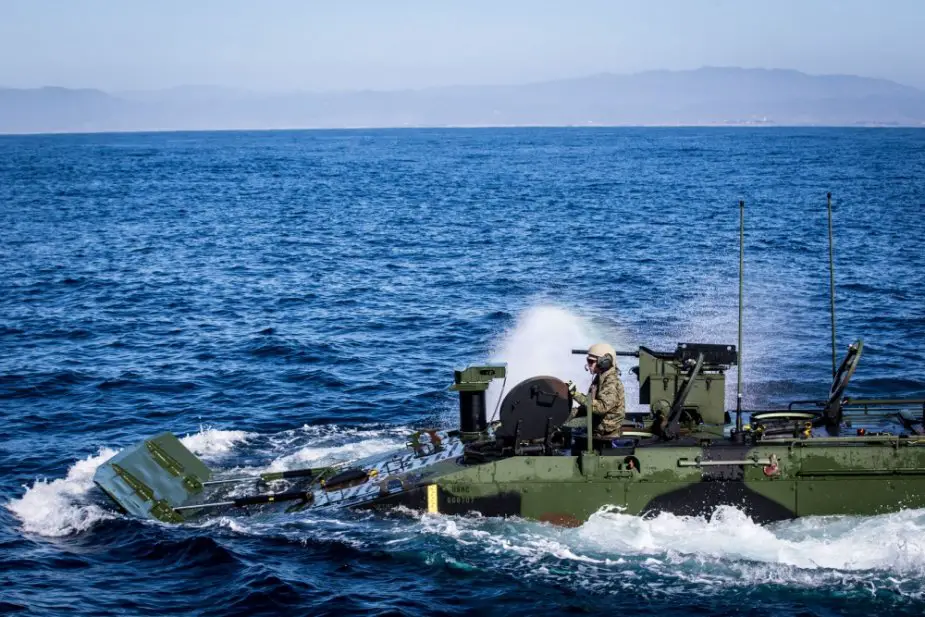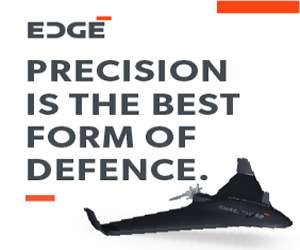In June 2019, BAE Systems, along with teammate Iveco Defence Vehicles, was awarded a $67 million contract modification by the U.S. Marine Corps to develop new variants for the Amphibious Combat Vehicle (ACV) Family of Vehicles program for enhancing battlefield situational awareness and firepower. Some capabilities are being tested.

A U.S. Marine with the Amphibious Vehicle Test Branch, Marine Corps Tactical Systems Support Activity, watches from an open hatch as an Amphibious Combat Vehicle is maneuvered into the amphibious transport dock ship USS Somerset (LPD 25) as part of the vehicle’s developmental testing off the shore of Marine Corps Base Camp Pendleton, California, Jan. 29, 2020 (Picture source: U.S. Marine Corps/ Lance Cpl. Drake Nickels)
The Amphibious Combat Vehicle (ACV) is a program initiated by Marine Corps Systems Command to procure an amphibious assault vehicle for the United States Marine Corps to supplement and ultimately replace the aging Assault Amphibious Vehicle. The program replaces the Expeditionary Fighting Vehicle program canceled in 2011. Originally a plan to develop a high-water-speed vehicle, the program has expanded into a multi-phased approach to procure and develop several types of amphibious-capable vehicles to address near and long-term requirements. Given the budget environment and the technological challenges involved, the ACV program was split into two separate phases. The first phase is for immediate upgrade to existing equipment types while testing and trying out new concepts. The second phase is to develop then field a single, ultimate vehicle using new technology and the lessons learned operating the improved vehicles to replace the equipment from the first phase.
“The ACV has proven to be a versatile platform capable of numerous configurations to meet current and future mission requirements,” said John Swift, director of amphibious programs at BAE Systems. “With this award, BAE Systems will be able to develop a family of vehicles that will deliver the technology and capability the Marines require to accomplish their mission in support of our national security.”
The contract calls for the design and development of the command (ACV-C) and the 30mm medium caliber cannon (ACV-30) variants. The ACV-C incorporates seven work stations to provide situational awareness and control of the battlespace. The ACV-30 integrates a 30mm cannon to provide the lethality and protection the Marines need while leaving ample room for troop capacity and payload.
BAE Systems was previously awarded a low-rate initial production contract in June 2018 for the personnel variant (ACV-P). The Marine Corps announced the ACV had successfully completed anticipated requirements testing and would no longer be pursuing an envisioned incremental ACV 1.1 and ACV 1.2 development approach. The program is now known as the ACV Family of Vehicles, which encompasses the breadth and depth of the vehicle’s capabilities and multiple variants.















